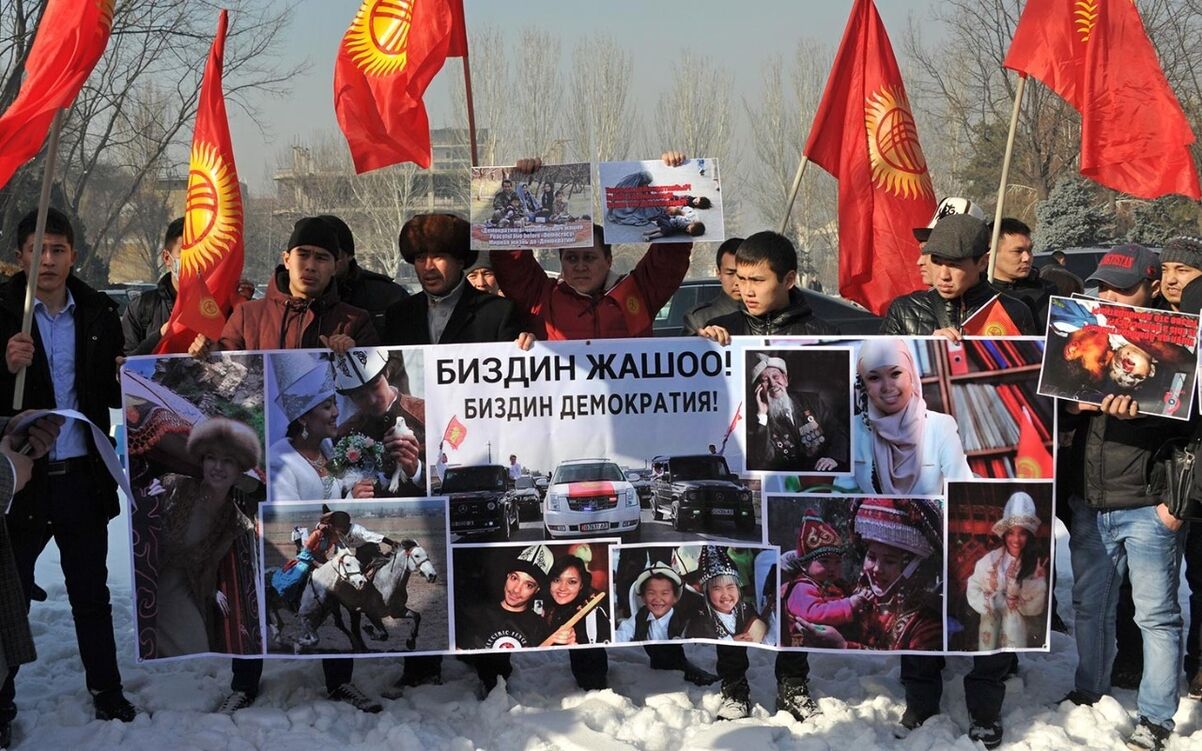Kyrgyzstan’s only gay club has closed ahead of the probable passage of a law that would crackdown on LGBTQ life in the Central Asian republic.
London, which was inconspicuously nestled inside of a gas station, was shut down by the property’s owner after he discovered that it was being used as an LGBTQ meeting ground. Operated by a lesbian couple who used to run a cabaret night in the Kyrgyz capital of Bishkek, attendees would have to be recommended by a regular to gain entrance.
There are no other spaces like it in nation of 6 million people.
Kyrgyzstan, where homosexuality was decriminalized in 1998, was once known as progressive alternative to neighboring countries like Uzbekistan and Turkmenistan, in which being caught engaging in same-sex activity is punishable with up to three years in prison. But the introduction of anti-LGBTQ legislation in the Sunni Muslim state has created a new hostility to queer and trans people.
Since 2014, lawmakers have been pushing a anti-propaganda law strikingly similar to the one passed by Russia in 2013, which bars the dissemination of material regarding “non-traditional sexual relationships” to minors.
The language of Kyrgyzstan’s bill is nearly identical to the Russian legislation at first glance. If enacted, the legislation would prohibit “public expression and events that contain information about ‘non-traditional sexual relations.’” The international LGBTQ organization Human Rights First has claimed it effectively bans “the existence of LGBT organizations” and “[shutters] gay clubs.”
But advocates say the Kyrgyz version is far more extreme.
What differentiates the two bills is the Kyrgyzstan’s propaganda legislation mandates a one-year jail sentence for anyone in violation of the mandate. It has already passed two readings of the parliament by a near-unanimous vote and awaits a final deliberation before becoming the law of the land.
Even though the bill has yet to pass, LGBTQ groups believe that the bill has already had an extremely adverse impact on the country’s queer and trans population.
The local advocacy organization Labrys claims that hate crimes against LGBTQ people in Bishkek shot up by more than 300 percent after the bill was first proposed three years ago. Eighty-three percent of respondents to a recent survey of queer and trans Kyrgyzs claimed that they had been victims of a bias attack.
An earlier report from Human Rights Watch found that queer women and trans men are frequently targeted with corrective rape. Even the country’s Ministry of the Interior has claimed that he would beat his son if he discovered the boy were gay.
Before London opened in its current venue, the soon-to-be-shuttered establishment was closed twice before. Organizers had to vacate their first location after a violent mob of more than 30 men smashed through the front door and started destroying tables and chairs. Many of London’s staff members were injured in the brutal attack.
The club’s co-founder, who didn’t close her name to media, says that if critics were to visit London for themselves, they wouldn’t be so afraid of it.
“The problem is that people don’t understand what a gay club is,” she told Radio Free Europe in an interview. “They think we are doing something pornographic. But if they came and saw that it is just a normal club, where people dance and drink, then it would be OK.”
Don't forget to share:
Help make sure LGBTQ+ stories are being told...
We can't rely on mainstream media to tell our stories. That's why we don't lock our articles behind a paywall. Will you support our mission with a contribution today?
Cancel anytime · Proudly LGBTQ+ owned and operated
Read More in Impact
The Latest on INTO
Subscribe to get a twice-weekly dose of queer news, updates, and insights from the INTO team.
in Your Inbox













